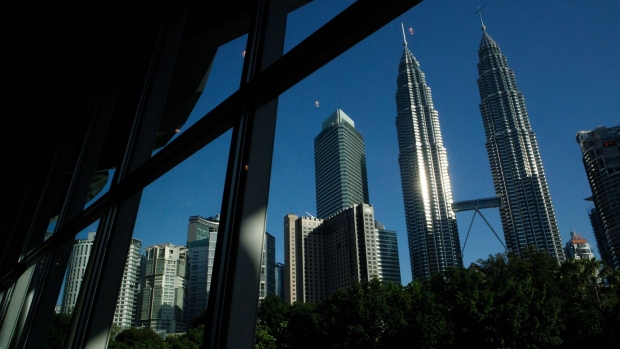Jul 2, 2024
Malaysia Spending Shows Urgency for Fuel Subsidy Cuts, Says Citi
, Bloomberg News

(Bloomberg) -- Malaysia’s fiscal spending for the first five months of the year underscored an urgent need to reform fuel subsidies so that the country can meet its 2024 deficit target, according to Citigroup Inc.
Government spending from January to May made up 53.9% of its full-year target, higher than similar periods in previous years, Citi’s Chief Malaysian Economist Wei Zheng Kit wrote in a note Monday. Malaysia may start to roll back blanket subsidies for the RON95 fuel — its most commonly used gasoline — as soon as this month, after shifting toward targeted diesel assistance in June, he said.
Prime Minister Anwar Ibrahim aims to lower Malaysia’s budget deficit to 4.3% of gross domestic product from 5% last year by phasing out broad subsidies, as he looks to attract investments into the Southeast Asian country. Malaysia spent about 81 billion ringgit ($17 billion) on subsidies in 2023, with blanket fuel assistance making up the bulk of it.
The government may see additional savings of 3 billion to 4 billion ringgit this year if they implement a hike of 30 sen per liter for RON95 in July, according to Citi. Authorities said targeted diesel assistance will save the government about 4 billion ringgit annually.
Still, officials are treading cautiously, and some analysts project that the government may delay the RON95 subsidy cuts to end-2024. Anwar said Tuesday that the government’s focus was on ensuring its diesel reforms go smoothly, after a 56% overnight hike in prices last month was met with backlash.
The government doesn’t have a policy paper at this point that would allow it to quickly unwind blanket RON95 subsidies, Anwar told Parliament.
“Targeted subsidies are hard to implement. If you ask me, we should have done it for RON95 a long time ago, but it’s not easy,” he said.
(Updates with prime minister’s comments in last two paragraphs)
©2024 Bloomberg L.P.






